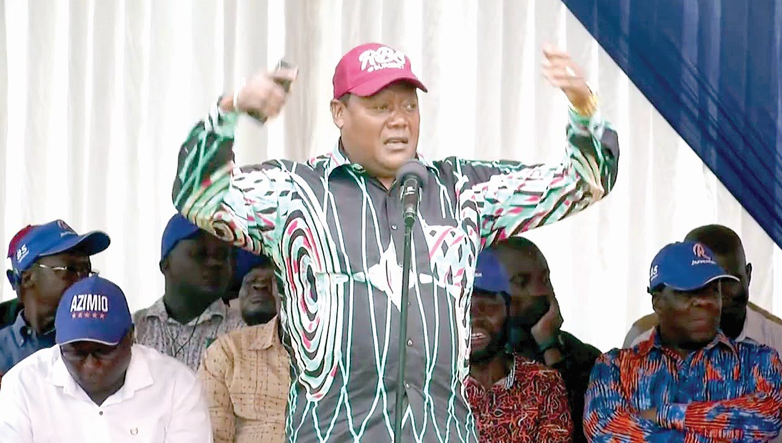MPs push to include extra wives in cover

Lawmakers are now pushing to have more of their wives included in the medical cover provided by Parliament.
In a report tabbed in the National Assembly, the committee noted that at the moment, medical cover for members only provides for one spouse and a maximum of five children below the age of 25.
Each of the 349 Members of National Assembly and 67 Senators are entitled to an inpatient cover of Sh10 million, outpatient cover of Sh300,000, maternity cover of Sh150,000, dental and optical cover of Sh100,000 each and last expense in case of death of Sh100,000 per family per annum.
The committee has recommended that members who want to include other spouses must pay a premium.
Pay premiums
Reads the report: “On the question of a member having more than one wife and more than five children as provided for under the scheme currently, members are encouraged to pay premiums that will enable them provision of other spouses and children.”
The debate to have more wives included in the cover started in the 12th parliament when Budalangi MP Raphael Wanjala petitioned their employer, the Parliamentary Service Commission (PSC) to review the medical cover to include all their spouses and their children.
This is after polygamous MPs ganged up and demanded that PSC scraps off the current cover to include spouses and children and revert back to the old system that had included more than one wife.
But while responding then to the MPs concerns, PSC said that the matter is not in the jurisdiction of PSC but Salaries and Remuneration Commission (SRC) which set the benefits of all State officers.
In the 9th Parliament, the medical scheme in the National Assembly covered two spouses.
The committee is also pushing the PSC to consider an extension of medical cover to members beyond parliamentary terms.
The committee told PSC to consider the said proposal even if it will require members to remit some deductions towards the cover when they are still serving.
According to the committee, PSC should approve the Post Retirement (PRMS) proposal that is suggesting that members make a monthly contribution of 7.5 per cent while serving and PSC also contributes another 7.5 per cent to make a total of 15 per cent.
Private cover
The committee however told members that they are free to get a private cover from Former Parliamentarians Association (FOPA), Kenya Association of Retired Officers (KARO), National Hospital Insurance Fund (NHIF) and any other medical insurance provider as long as they will pay the requisite premiums.
Reads the report: “the commission is at an advanced stage of establishing a post-retirement medical scheme for members of Parliament who will be required to contribute in order to benefit. Once the PRMS starts, it will take care of any MP who loses in the election and had subscribed to it.”
It adds: “The PSC should approve the PRMS to cover members after they retire or lose elections and the directorate of Human Capital and Administrative Services should provide the committee with the way forward within 90 days.”
The push came after the committee heard that although the medical cover for members is expected to run from September 1 to August 31, every year which is in tandem with the elections calendar, the covers have been running from January 1 to January 31 December every year.
Receiving treatment
As a result, the committee was told that the members who lost elections remained in the cover for four months since their premium for the full year has been paid and that is why any member/dependant who was in the middle of receiving treatment when they lost election, continued with the treatment until the expiry of the contract subject to availability of money the respective benefit.
But in order to ensure that the commission is not held liable for covering members who are no longer MPs on account of losing elections, the committee was told that if the member of dependant is hospitalised at the time of elections, the insurer would be responsible for the hospital bill until the patient is discharged since the loss period began when the member was still in parliament.
Reads the report: “However this is subject to the availability of money in the inpatient benefit. In the event there is no money in the benefit at the time of discharge, the commission may consider extending ex-gratia assistance for the hospitalisation that began when the MP was still in office.”











